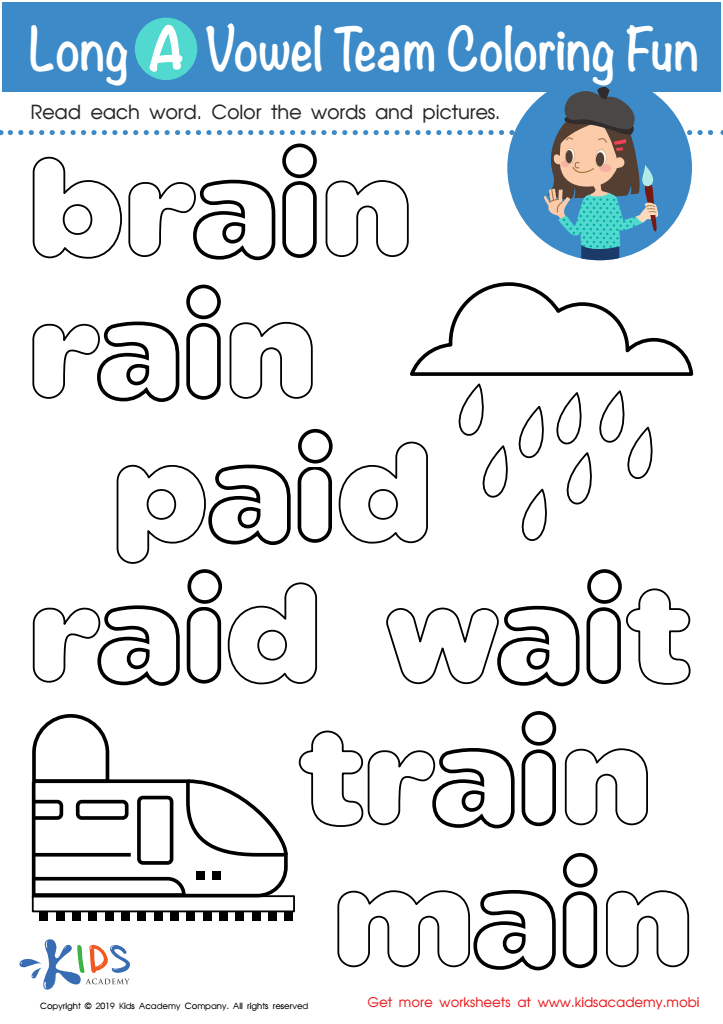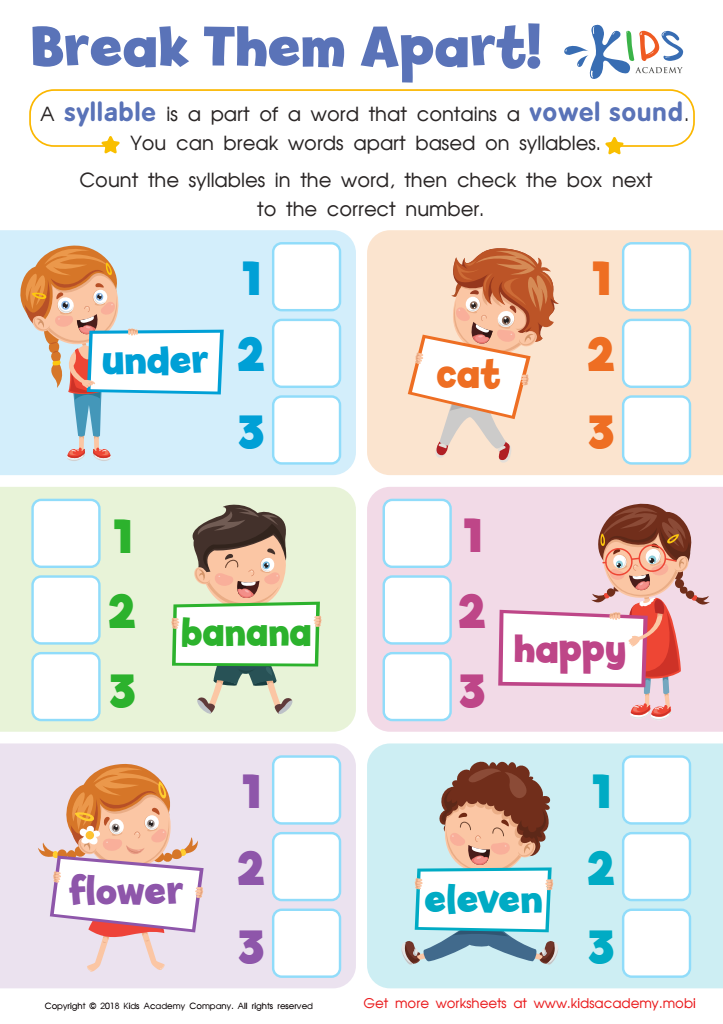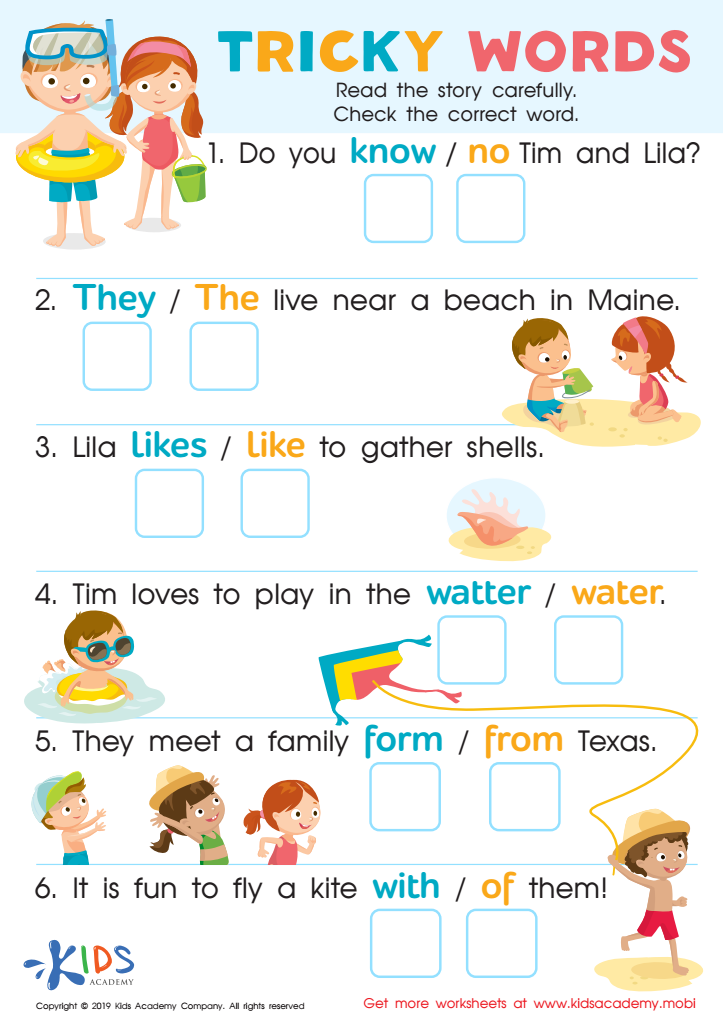Reading comprehension Normal Elementary Phonics Worksheets for Ages 5-8
5 filtered results
-
From - To
Boost your child's reading skills with our Reading Comprehension Normal Elementary Phonics Worksheets, tailored for ages 5-8. Perfectly designed to build a strong foundation in reading, these engaging worksheets focus on alphabet recognition, elementary phonics, and essential learning skills. Each activity fosters understanding through fun, interactive exercises, enhancing your child's ability to decode words and comprehend sentences. Ideal for early graders, these printable worksheets not only support classroom learning but also promote independent study at home. Equip your child with the tools they need for reading success and watch their confidence and abilities soar!


Long A Vowel Team Coloring Fun Worksheet


Reading: Break Them Apart Worksheet


Tricky Words Worksheet


Phonics and Word Recognition: Assessment 1 Worksheet


Long and Short E Worksheet
Reading comprehension and phonics are foundational skills for children ages 5-8 that set the stage for all future learning. At this pivotal stage in education, children are transitioning from recognizing letters and sounds to understanding words and sentences, which is essential for reading fluently and with ease.
Phonics is the method of teaching reading through the relationship between sounds and the spelling patterns that represent them. By understanding phonics, children can decode new words, greatly enhancing their reading speed, accuracy, and confidence. Strong phonics skills enable children to tackle unfamiliar words independently, fostering a love for reading and learning.
Reading comprehension goes a step further, where the emphasis is on making sense of and interpreting the text. It's not enough for children merely to sound out words; they need to understand the meaning behind the sentences and passages they read. Strong reading comprehension skills lead to better academic success in all subjects including math, science, and social studies, because these subjects often require reading and understanding complex instructions and texts.
If parents and teachers prioritize these skills, they provide children with a toolkit for lifelong learning. Children with a solid foundation in reading comprehension and phonics are more likely to develop critical thinking, problem-solving skills, and an overall curiosity about the world, leading to well-rounded intellectual and emotional growth.
 Assign to My Students
Assign to My Students











